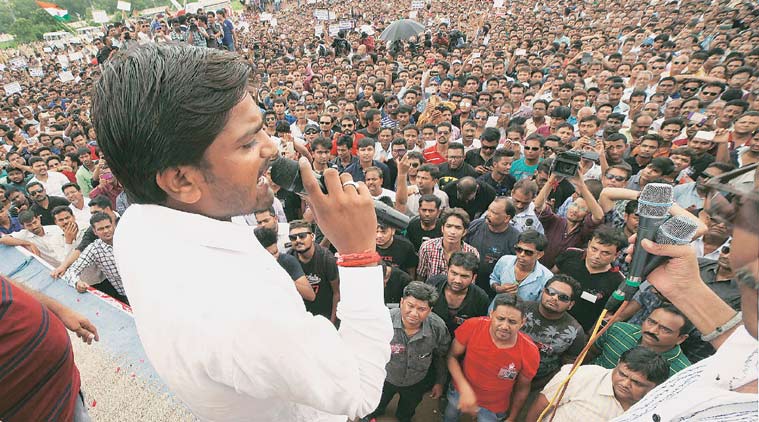Many Patels in Gujarat are agitating for Other Backward Caste status, in order to access the same “Reservation” benefits as Scheduled Castes, Schedules Tribes and Other Backward Castes. Reservations are a quota based form of affirmative action, through which a certain percentage of government jobs and places in educational institutes are guaranteed to members of certain communities in India which are traditionally disadvantaged.
Large gathering of Patels have taken place, which in some pockets have turned into riots, with damage to property, injuries and a number of deaths.
Patels in Gujarat make up about 12% of the state’s population. They are considered to be economically well off. But there are social problems, in particular youth unemployment and lack of opportunities for those not already born wealthy. There is reportedly a high suicide rate amongst unemployed youth.
I understand that when you’re actually living in the midst of a depressing reality,where youth from your community are lumpen and direction-less, often drinking alcohol all day with nothing to do, and you see that another community (caste) can get decent jobs and gain entry into reputable educational institutions with lower performance, it is difficult to accept and causes resentment.
One approach is to agitate to try and scrap reservations in total. Indeed, Gujarat has seen anti-reservation agitations in the past, and Patels were considered to be a major part of this. But perhaps over time it is becoming clear that no political party is going to scrap reservations due to the political fall out. No political party expects to be able to come to power if it antagonises the communities that benefit from reservation, risking making them vote en bloc against themselves.
So a section of Patels have taken an “if we can’t beat them, join them” attitude. It is sad, but understandable.
One only hopes that some sanity will one day prevail to affect a total re-evaluation of the basis of affirmative action in India.
Affirmative action from the state should only be based on helping those in poverty to have opportunities; qualification for the benefits should not be based on caste. In today’s India you frequently find schedules caste or other backward caste families very well off, and supposedly upper caste families mired in poverty.
The importance of caste in Indian life would have greatly diminished by now if it wasn’t for this out of control monster of a system that has made castes into permanent political formations. Even B. R. Ambedkar who was one of the founders of the system of reservations only envisioned it to be a short term time bound measure, not a permanent fixture of India for centuries to come.






























